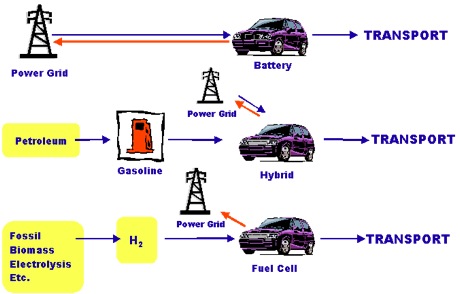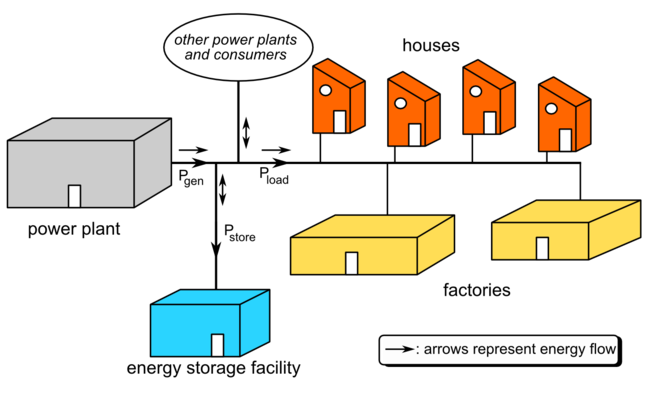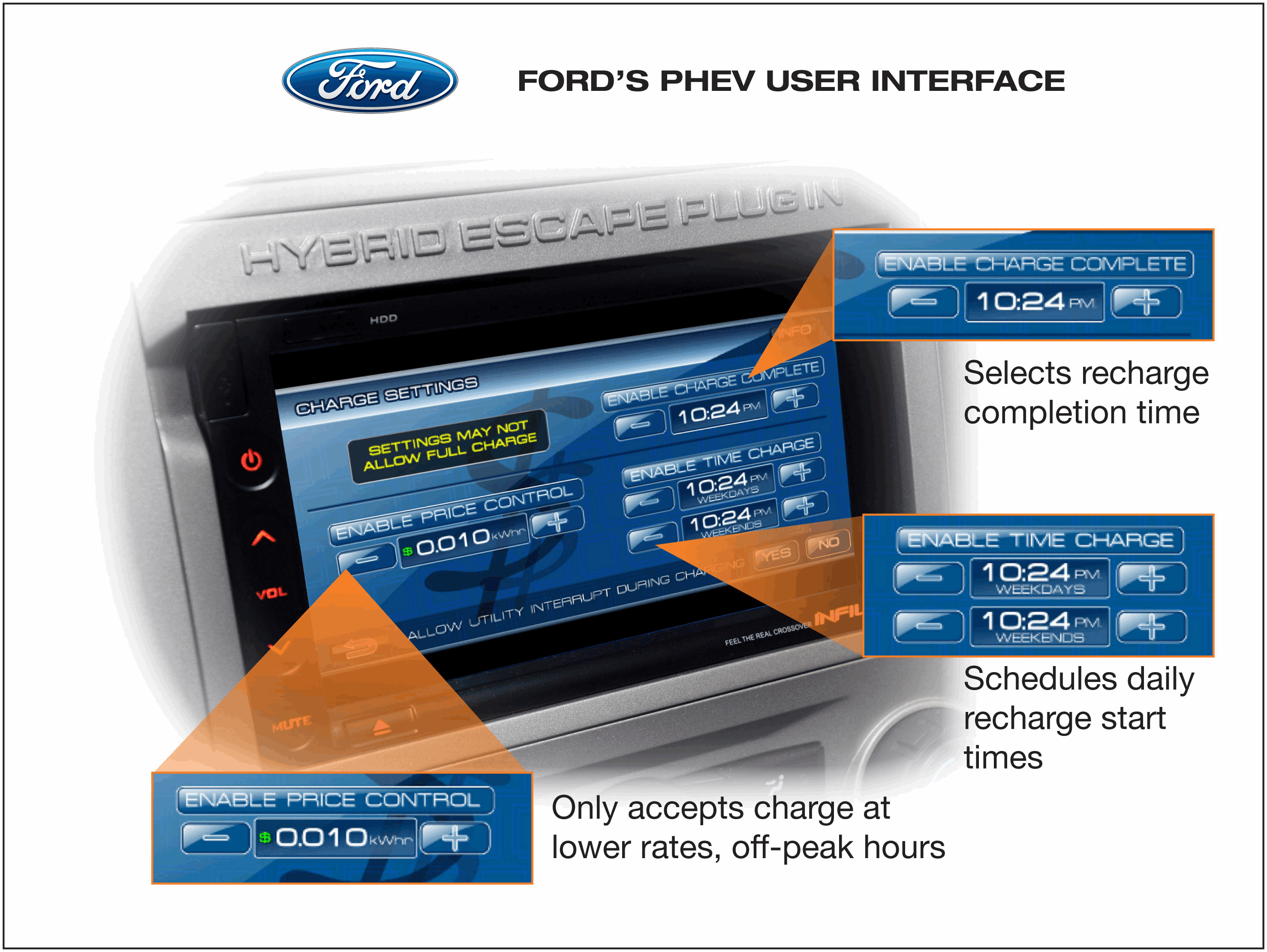

Three Scenarios:
 can continuously exchange power
with the grid. Could use only for energy storage and "buy" electricity when
its low (off peak) and "sell" when its high (Peak). If an EV stored, say, 40 KWH
of power, then they could "sell" that power to 20 houses for 2 hours (at peak times).
can continuously exchange power
with the grid. Could use only for energy storage and "buy" electricity when
its low (off peak) and "sell" when its high (Peak). If an EV stored, say, 40 KWH
of power, then they could "sell" that power to 20 houses for 2 hours (at peak times).
If 1000 homeowners in Eugene did this, then EWEB would have access to 40,000 stored KWHs. Therefore this is a form of scaleable energy storage. Of course, you would never make any money this way as you paid about 40K for the EV in the first place.
 . If gasoline
is cheap, this makes some sense. As a future strategy, its kind of stupid. Also
means electricity has a carbon footprint.
. If gasoline
is cheap, this makes some sense. As a future strategy, its kind of stupid. Also
means electricity has a carbon footprint.
One financial scenario:
Wind tends to blow stronger at night when the electric load is low he  If electric vehicles charged at night with wind power, the grid operator could use the energy
in the batteries, when vehicles aren't needed for driving and are plugged in,
to help maintain grid reliability.
If electric vehicles charged at night with wind power, the grid operator could use the energy
in the batteries, when vehicles aren't needed for driving and are plugged in,
to help maintain grid reliability.
The vehicle owner would then be paid for providing these energy services at a greater value than what they paid for the electricity.
Some potential problems:
No enviromental benefit if charging from Coal fired electricity in the first place.
For rechargeable batteries, the life is really the number of cycles they go through,
not the amount of time they are used. Using them on the grid would increase the frequency of the
discharge/recharge cycle and cause them to be replaced more frequently. That's a very significant cost.
Will that warranty on your expensive car battery be honored
if you've used it to feed power to the grid?
The vehicle to grid concept would mean that grid operators would need to know the status
and availability of thousands or millions of tiny generators.
They'd need to know where they are located and whether the local transmission
lines had the capacity to transmit electricity to the areas where it is needed.
They would need to be able to communicate to each of these vehicles and throttle them up and down,
calculating, in real time, which ones were suitable for use. Its like cheaper for Utilities
to build their own Electricity Storage facilites/battery farms than rely on such a highly
distributed system.

Also needs a smart management system on the consumer end:
